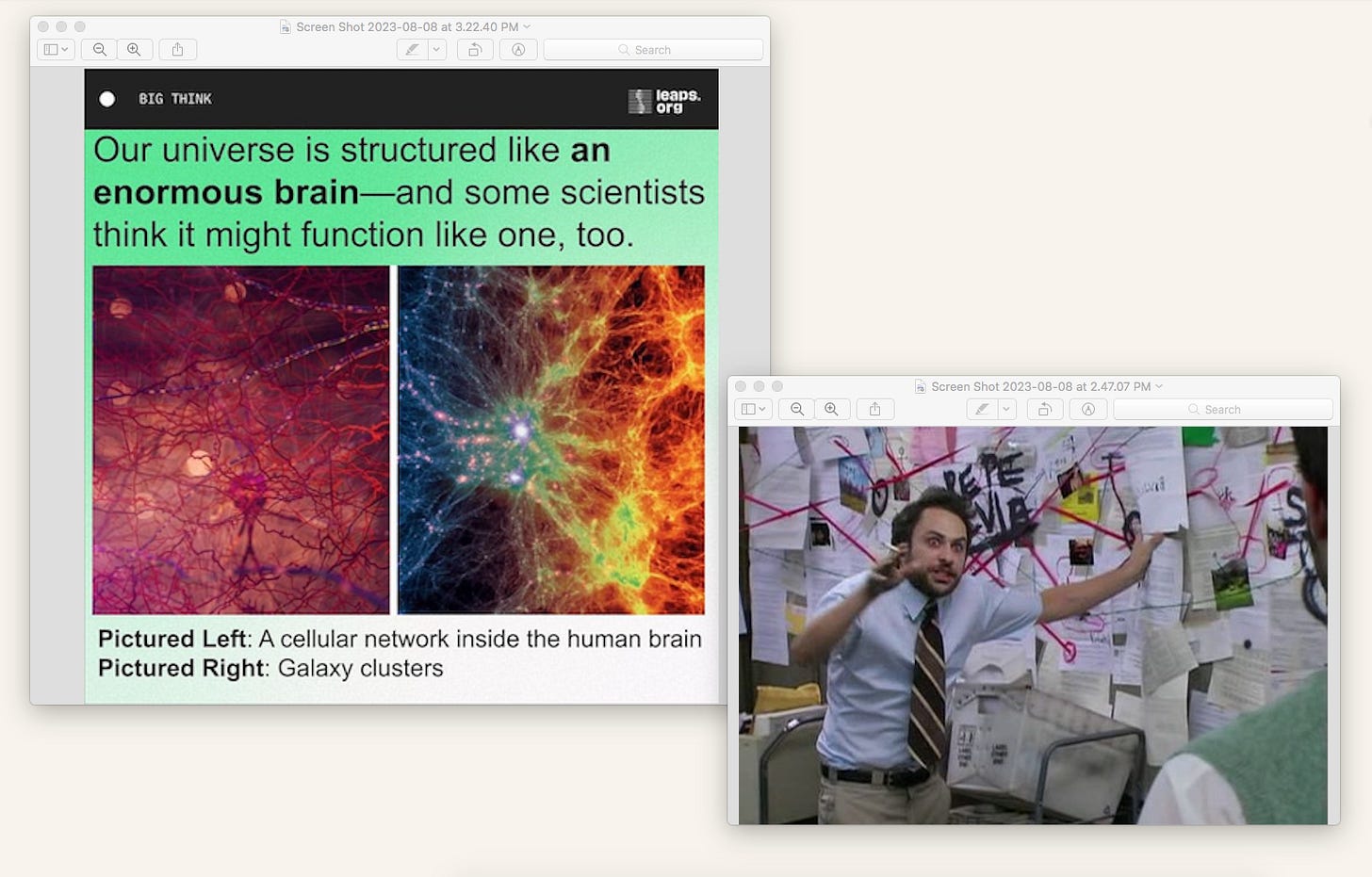how to like being alive…?
I used to want an answer to this question. Now I’m obsessed with why we’re asking it.
hey, I’m alexis (she/her)
Today, I describe myself as a queer and neurodivergent writer, evidence-based edutainer, neuro-affirming life/work coach, and wannabe personal growth culture critic—but I’m sure that’ll change. I’ve been steeped in the world of personal growth since 2017 and working in it professionally since 2019, and every year I get increasingly suspicious of everything we’ve normalized as an industry.
[For a blow-by-blow of how I got here, like how I became an ex-girlboss, earned my Specialization certificates in Positive Psychology and Integrative Somatics, or accidentally sold a self-help book called Find Your F*ckyeah to a major publisher in 2018, visit this page.)]
I struggle to summarize what I do and why, but if I have to: I’m obsessed with change.
How do people change? How do brains and bodies change under stress, and how do we recover? How do we figure out which kinds of change we’ll actually like? How do I teach my own nervous system to better adapt to change? How does culture change over time? How do we “shape change,” like Octavia Butler wrote about? What changes do we need to make collectively, and what changes are we afraid to make?
Everything chaotic about being alive makes more sense to me when I look through this lens of change: either we’re moving toward it (embracing change) or moving away from it (resisting change). But change is coming, either way.
being a person is simultaneously gorgeous and traumatizing, no?
There’s **waves hands around wildly** A LOT going on, and we desperately want someone to tell us how to like being alive.
Not any one person, of course.
We grew up on the internet, which gave us a healthy suspicion of any one person claiming to have all the answers. We’re grifter-trained. Con-artist ready. We can smell the scam a mile away. We’re not expecting the meaning of life to be summarized in a twelve bullet point listicle, or upvoted to the top of a google search, or found inside the next big New York Times bestselling self-help book.
But maybe. . . we could crowdsource a personalized answer to this question?
Maybe if we searched for long enough, and listened to enough scientific experts, and then cross-referenced those experts with personal anecdotes from people like us, who were willing to share their experiences online…then maybe, by process of elimination, we’d eventually find some solutions that work?
Right, a happiness algorithm. I was looking for my answers in this format for awhile, too. A lot of us have.
Personally, I think being able to crowdsource our mental health resources and personal growth tools is a step in the right direction. Thanks to social media platforms and increased communality online, sharing our diverse experiences with one another is helping to de-stigmatize mental illness suffering and normalize different ways of thinking and being.
but the personal growth industry has noticed this.
When it became clear that lived experience had inoculated us against being told what to do, the industry realized it had to adapt. “I can tell you how to be happy” has shape-shifted into “let me help you sift through all this noise.” They’re not telling us what to do—they’re saving us time. Using their expertise to get us there faster. Helping.
To work on us nowadays, marketing needs to feel less like marketing, and more like support.
And to need support is to be a person! We need it to grow as people. We need it to laugh more and work less. Support is a necessary prerequisite for living a materially stable life, for having enough connection to feel alive, and enough emotional elasticity to handle change without breaking down. I think that these needs are human, and therefore worthy of pursuit.
But how do we tell the difference between receiving genuine support—and when our need for support is being sold back to us as a complex set of rituals we have to perform perfectly, in order to earn health and happiness?
If you’re interested in stuff like:
defending procrastination and questioning productivity
plant growth as a metaphor for human growth
learning to listen to our brain-body, instead of ignoring it and accidentally making our suffering worse (concepts I’ve nicknamed “energy budgeting” and “personal seasons”)
compassion: the science of it, the reasons it matters, why we’re terrible at it as a society
somatic (aka body) tools for stress relief and how to build low-energy toolkits
looking to history to better understand current trends in health and wellness, because we’ve made these mistakes before 😅
dreaming up ways to make it easier to design our lives around care and connection, instead of around profit and being “normal”
learning about disability justice, mutual aid, and community care in public
critiquing the idea that being healthy is somehow morally good (aka challenging healthism)
liberation psychology & solutions for mental health that go beyond telling everyone to go to therapy
and generally, this weird-ass moment in history we’re living through
…Then you’ll probably like this newsletter. ☺︎
why this newsletter?
Because my brain is a tiny galaxy of random ideas, and words help me travel from one isolated star to another, connecting the dots into a path I can retread as I go.
I don’t know if I’ll succeed, but I’m hoping to challenge our cultural obsession with topics like “self-care,” “productivity,” and “mental health” with equal parts tenderness and precision.
I’m know I’ll never get close to answering to this ‘how to like being alive’ question—and I no longer care that I won’t.
I just wanna hang out with all of the people wondering why we’re asking it.
Y’all seem cool.
Anyways,
Alexis






